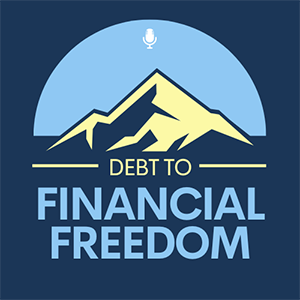Borrowing money can be a great way to make investments, cover expenses, and even achieve financial goals, but it’s important to do so responsibly and with the right information. Unfortunately so much information about debt is often lacking balance and is often skewed towards encouraging people to take out more debt (especially if the information comes from within the financial services industry!)
Similarly, I find debt can also often be lumped together as being ‘bad’. But, the truth is that when leveraged properly, debt can actually be a good thing and with a little awareness and education you can start to see the differences for yourself.
This is debt101. In this article, we’ll go over the basics of borrowing money to help you make informed decisions and keep your finances in shape.
Types of Debt
There are two main types of debt: secured and unsecured. Secured debt is backed by collateral, such as a home or car, and is typically less risky for lenders because they have something to seize if the borrower defaults on their payments. Unsecured debt, on the other hand, is not backed by collateral and is therefore riskier for lenders. Examples of unsecured debt include credit card debt, personal loans, and student loans.
Interest Rates
Interest is the cost of borrowing money, and it is calculated as a percentage of the loan amount. The interest rate you pay on your debt will depend on the type of loan, your credit score, and the lender’s risk assessment of your ability to repay the loan. High-interest debt, such as credit card debt, can quickly become overwhelming and make it difficult to get ahead, so it’s important to understand the interest rate you’re paying and compare it to other options before borrowing. Always look at your credit card statement to see exactly how much interest you’re paying. There are also plenty of online calculators you can use for free and the results can be astounding (in this case, it often benefits the banks more when you remain in debt to them because you will ultimately pay them a lot more interest than you ever realise!)
Repayment Terms
The repayment terms of a loan, including the length of the loan and the amount of the monthly payments, will impact your overall debt repayment strategy. Longer loan terms usually mean lower monthly payments, but they also result in paying more in interest over the life of the loan. Shorter loan terms, on the other hand, result in higher monthly payments, but you’ll pay less in interest over time. It’s important to choose a repayment term that works for your budget and financial goals.
Credit Scores
Your credit score is a number that represents your creditworthiness and is used by lenders to assess the risk of lending you money. A high credit score can help you get approved for loans with better interest rates, while a low credit score can make it more difficult to get approved and result in higher interest rates. It’s important to regularly check your credit score and work to improve it if necessary by paying bills on time, reducing debt, and limiting credit applications.
Debt Consolidation
Debt consolidation is a strategy for paying off multiple loans at once by combining them into a single loan with a lower interest rate. This can be a great way to simplify your debts and make payments more manageable, but it’s important to understand that debt consolidation does not eliminate debt, it simply reorganises it. Additionally, if you’re not careful, debt consolidation can actually increase your overall debt by extending the life of the loan and increasing the interest you pay over time.
I’ve realised, borrowing money is a part of many people’s financial lives, but it’s important to do so responsibly and with a good understanding of the basics. By considering the type of debt, interest rates, repayment terms, credit score, and debt consolidation options, you can make informed decisions that help you achieve your financial goals.
Ready to take the next step towards financial stability and wise options? Schedule a no-strings-attached consultation with me by clicking on my booking link.







